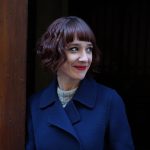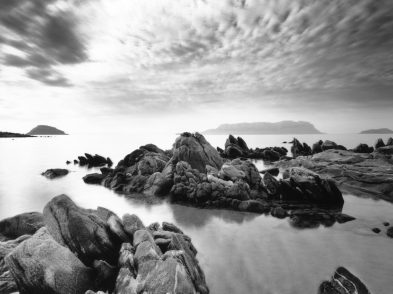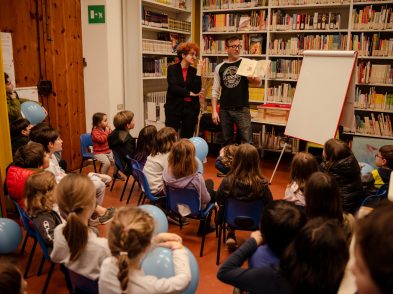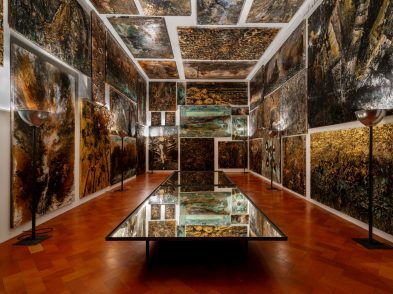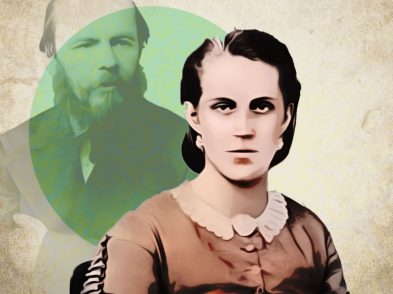Singer, composer, actress and video artist Sabina Sciubba is not easily categorized. It is precisely this mystery that makes her so intriguing. After a peripatetic life between Rome, Germany, France and New York, Florence is lucky to have her here.
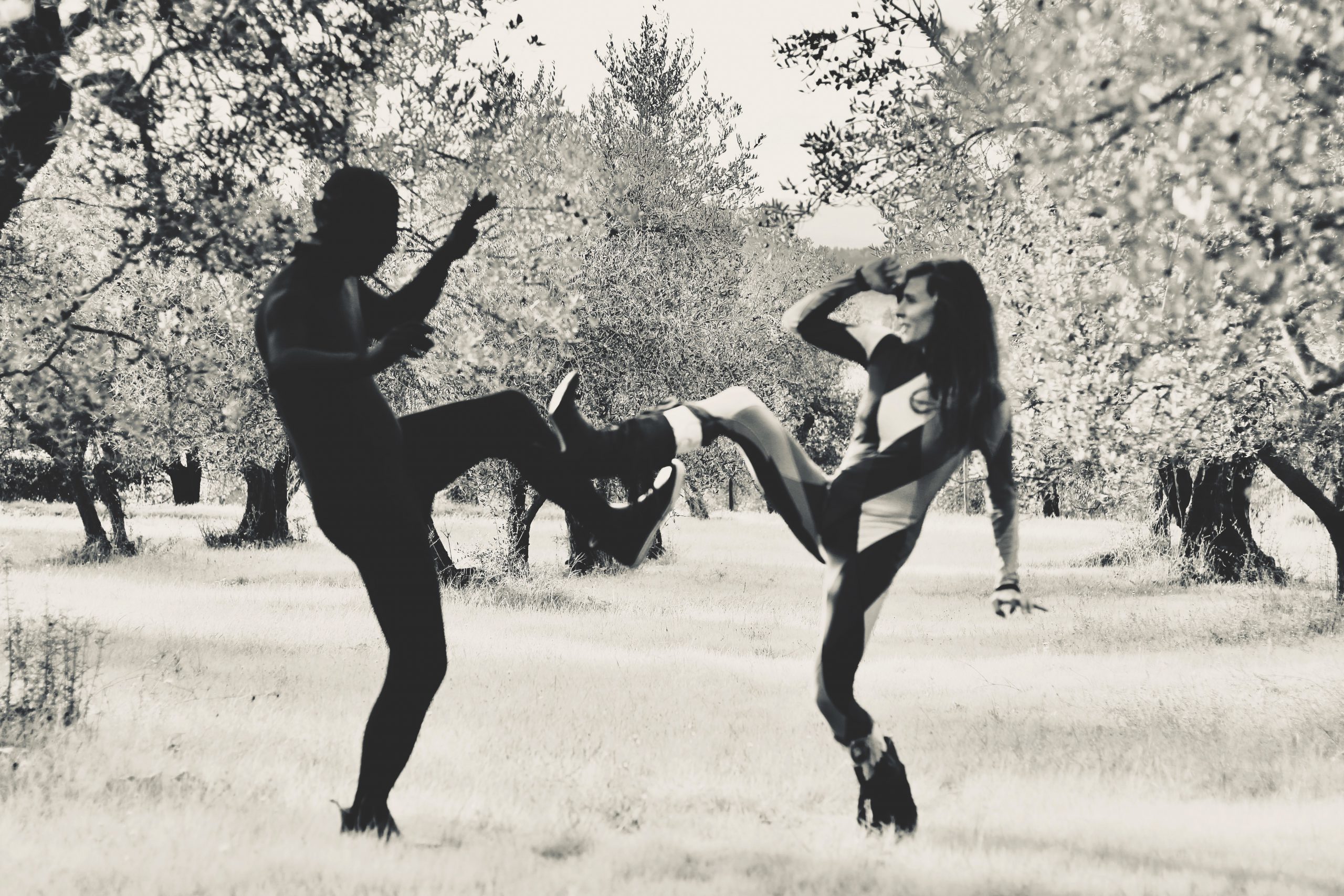
Sabina Sciubba and her shadow (Daelen Cory) / ph. Emma Mailova-Kulish
Singing from a very young age, Sabina remembers how her musical experimentation started as early as eight when she “over-dubbed, recording with two tape recorders. My mum was a painter, so I grew up with her being immersed in her work. She loved classical music and she was always painting with Bach playing loudly. Bach was probably the first real musical influence that elevated me; I really felt that he was godly.” She then studied in musical conservatories for a number of years. “At the time, I was already performing, so I was maybe a bit big-headed and thought I didn’t need any teaching. I had a teacher who gave me the most valuable advice, even though I didn’t appreciate it at the time. I was singing jazz in English, and Karen Edwards, in the jazz department in Munich, asked me, ‘What’s your background? Why are you singing in English? Why are you singing jazz?’ It took me years to understand that she was telling me to look for my own voice.”
Sabina certainly found it. She rose to fame for her role as lead singer in the Grammy-nominated electronica band Brazilian Girls, touring widely and even featuring on David Letterman and Jimmy Kimmel. After playing together for 16 years, the band is now splitting up after coming to a natural end. Sabina’s first forays into a solo record took place with the release of Toujours in 2014. Termed “the indie Piaf” by Steve Lamacq of BBC Radio 6, her unique contralto voice and her signature “multilingual storytelling” (she’s fluent in six languages: German, Italian, French, English, Spanish and Portuguese) appeals with an enigmatic blend of accents and deep, rich tones. Descriptions of her genre vary from electronica to pop, alternative rock and even romantic-punk (by the show’s executive producer Emma Mailova), but what best fits is Sabina’s term “trans-genre”. It is this merging of styles that makes her music so captivating. From one song to the next, you’re never quite sure what you’re going to listen to. From the somewhat shocking Underage Girls to the heartbreaking I know you too well, it is evident that Sabina is following a creative instinct, expressing often personal stories in whatever way feels most natural. “It’s really spontaneous, it just happens. For example, I wrote a song for my uncle who died in an earthquake. He was Italian, but somehow the song came out in German, a language I find both poetic and scientific. The overlap of these two elements in other languages is totally incompatible.”
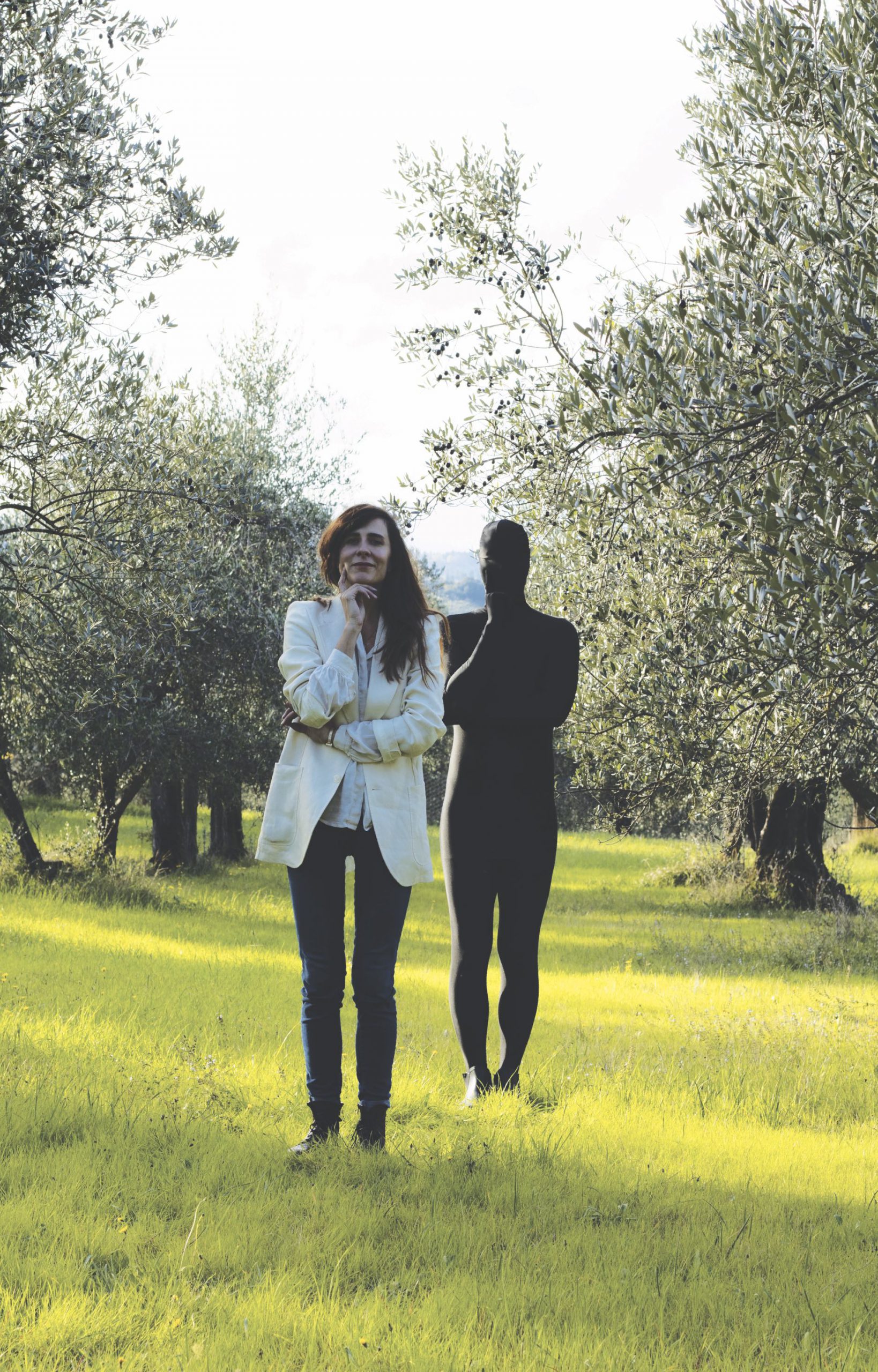
Sabina Sciubba and her shadow (Daelen Cory) / ph. Emma Mailova-Kulish
Force Majeure is her highly anticipated album, with a musical and theatrical project debuting in Florence at 9pm on January 25 at Cinema La Compagnia—the album is due for release this spring. The theme of the work is the struggle between light and darkness, between good and bad. A true performer, there will be visual art elements in the form of projections and Daelen Cory from Los Angeles, who will be Sabina’s shadow on stage, dressed in a black suit. “He’s a metaphor, the shadow projecting the light, almost like how Lucifer was actually an angel and bringer of light who fell into the abyss, or Goethe’s Faust, who says ‘I’m a part of that spirit who always tries to do evil but always ends up doing good’. I see the shadow as symbolizing fear and worry, while light epitomizes hope.” The impressive and intriguing costumes were created by Maria Sole Ferragamo with bespoke wearable artistic leather accessories.
Recorded at Officina Sonora Bigallo, the album includes two songs featuring the International School of Florence’s Cantabile Choir, headed up by Tanja Kustrin, and Sabina’s own children. With many mystical elements, Sabina’s spirituality is also present in the “message that light should always be what guides you, your guiding source”. She’ll be joined onstage by top-class musicians Riccardo Onori (artistic direction and guitar), Fabrizio Rat (piano) and Lawrence Fancelli (synth and bass). Another exciting aspect of the show is the fact that Sabina plays not only the spinetta, a baroque instrument, but also “plays her own voice” using drumsticks on an electronic drum pad into which she has fed her own voice.
Musical solo and group success aside, Sabina has also worked as an actress, appearing as Penelope in the FX series Baskets, alongside Zach Galifianakis, from 2016 to 2019. She has even composed the musical scores for several feature films and commercials, including The Party’s Over with Philip Seymour Hoffman and Forty Shades of Blue. “I love working on film music. It’s one of the more gratifying ways of making music because you are automatically inspired by the images. Making music in general is very gratifying, not always easy, of course, given the instability, but I think that if it was financially stable, then maybe it would be different. It’s like there needs to be that challenge in order for you to commit fully. As an artist you have to have hope, otherwise you would never take the risk.”
The constantly evolving and inventive artist has this to say when asked what has been the most amazing moment of her life so far: “Being a mum. My children are my biggest satisfaction. But in terms of my career, then I hope my best moment is still to come!”

